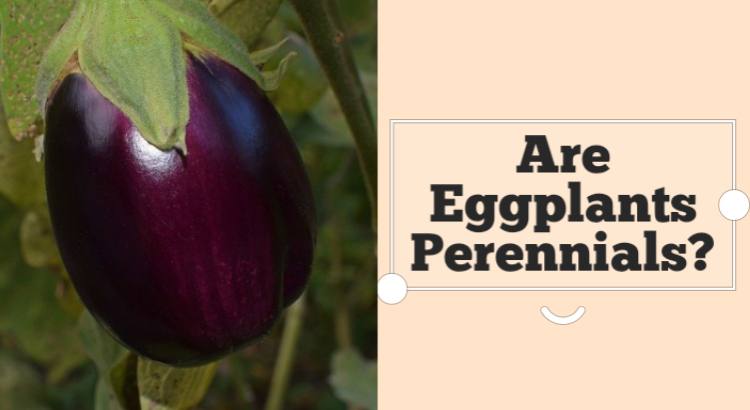Eggplants are a delicious and healthy part of any diet, but did you know that they’re also perennials? That’s right. There are actually 2 different types of eggplants: perennial eggplants and annual eggplants.
It all depends on their growing conditions and whether or not they can come back from their roots after being planted in your garden.
Eggplants are perennials or annuals.
Whether eggplants are perennials or annuals depends on where you live. If you grow them in a warm climate, they’ll stay in the ground for several growing seasons before their roots die out and you have to start over from seed.
But if you grow them in colder climates, eggplants are annuals that have to be replaced every year. You can plant eggplants as perennials outdoors if your garden has a space for them or if you keep them indoors in pots or greenhouses (or conservatories).
They won’t winter over well outside once the weather turns cold because their leaves will freeze and die off at temperatures below 50 degrees Fahrenheit (10 C).
But even if you live in a warm climate, it’s best to plant eggplants as annuals. This will allow them to grow quickly, producing fruit sooner than if they were perennials.
Annuals are also easier to manage because you won’t have to worry about replanting every year and having enough space for both the plants and their seeds.
If you want to grow eggplants as perennials, try growing them indoors. Grow lights and a heating system will be necessary if you live in a cool climate.
What growing conditions are necessary?
Eggplants are warm-season vegetables, which means that they grow best in warm climates. They need a lot of sun—eggplants will not thrive unless they receive at least eight hours of daily sunlight.
In addition to full sun, eggplants grow best when the soil is well-drained and rich in organic matter.
They also do well in sandy loams or clay loams; these types of soils allow for good drainage while retaining moisture for your plants to absorb through their roots.
Eggplants are heavy feeders, so it’s important to add compost or other organic matter to your garden beds before planting.
You can also add aged manure if you have access to it—this is especially helpful for getting your plants off to a good start.
As with many other types of plants, eggplants need to be planted in the ground at least 2–3 weeks before the last spring frost.
This will give them plenty of time to develop their root systems and become established before summer heat arrives. It also allows for adequate pollination by bees or other insects.
Do eggplants grow back every year?
Eggplants are a perennial plant in warm climates, but they are annuals in cooler areas. Eggplants can be grown as perennials in the warmer climates of central America and the Mediterranean basin.
Planting eggplant seeds directly into the ground will yield greater success when growing them as annuals.
Eggplant seeds should be planted about 1/4 inch deep and about 2 inches apart. The seedlings will begin to emerge in 7 to 10 days. If the soil is too dry, the seeds will not germinate well.
Eggplant seeds are delicate and must be handled with care. It is best to sow the seeds indoors in pots or trays first, then transplant them into the garden when they have developed true leaves.
This will help ensure a higher germination rate and reduce the risk of disease transmission from soil.
Conclusion
If you’re looking for a long-living plant, then eggplants are the perfect choice. Eggplants are perennials
The best part is that they will keep producing fruit throughout their life span so there’s no need to replant them like other plants might need.

